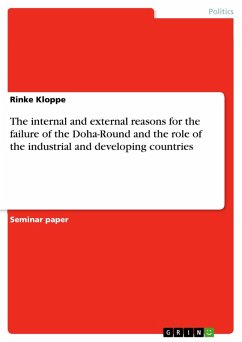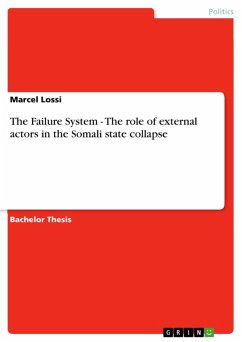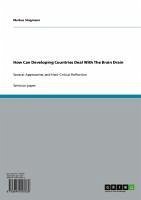Seminar paper from the year 2009 in the subject Politics - Miscellaneous, grade: 1, University of Vienna (Politikwissenschaft), course: Ageing and Pension Reform Around the World, language: English, abstract: In the last decade, the discussion about the role of social protection emerged in the context of development cooperation and therefore started to gain importance in many countries in the developing world. Several developing countries in Latin America, Africa and Asia began to implement social protection measures, like for example (conditional) cash transfers to protect the poorest and especially vulnerable groups against shocks and risks in difficult stages of life, like for example childhood, motherhood or old age. In this context, non-contributory old age pensions financed via taxes and provided by the state - especially for those not involved in other state old age insurance schemes - emerged and gained of importance in developing countries in the last few years. Donors and international institutions as well as governments of the respective countries recognized and emphasized on the importance of such schemes and their role in protecting poor old people. This paper deals with the given conditions that enable and the driving forces behind the implementation of universal non-contributory social pension schemes. It wants to explore what the main factors for their implementation in different developing countries were in the last few years. Thereby, the focus of the analysis lies on the international discourse and external forces, which push for the implementation of a specific pension scheme. Evidence was collected from the poorest developing countries with a universal pension scheme where a universal pension scheme was implemented in the last two decades: from Bolivia, Lesotho and Nepal, and partly from other countries where such schemes already exist, namely Namibia, Mauritius, and Botswana.
Dieser Download kann aus rechtlichen Gründen nur mit Rechnungsadresse in A, B, BG, CY, CZ, D, DK, EW, E, FIN, F, GR, HR, H, IRL, I, LT, L, LR, M, NL, PL, P, R, S, SLO, SK ausgeliefert werden.









